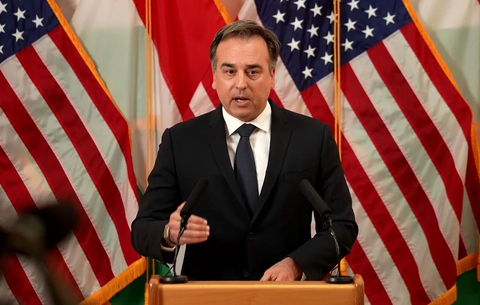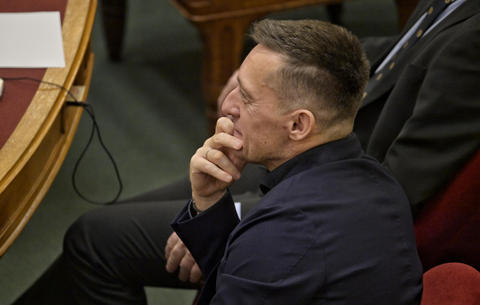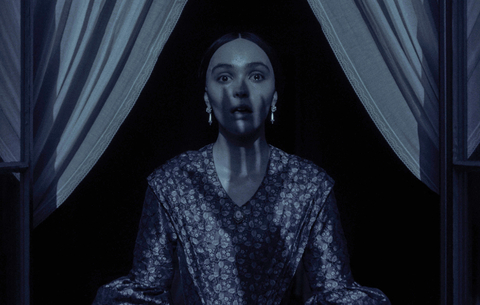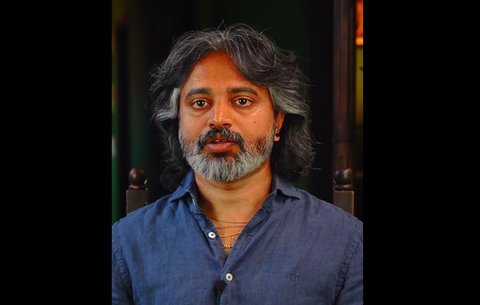What do some right-wingers have against Pokorni?
Janos Pelle wrote this article for the Magyar Nemzet, but the newspaper turned it down, saying the debate over the reasons for the Right's defeat had been concluded. We publish the article in abridged form, believing it to be of interest to more than just the right-wing.
My greatest concern about Fidesz's self-examination is that it is taking place in the columns of the Magyar Nemzet , a paper which I consider partially responsible for the defeat, since it is the most important right-wing paper. Should the investigation of a botched operation be carried out by a doctor who played a central role in the operation itself? Yet this is the newspaper which I contributed to regularly until it changed direction under a new editorial staff in 2000, and which undoubtedly contributed to the defeat. It is true that this was not the fault of its rank-and-file employees but the result of a decision taken at the highest levels, to the effect that the Hungarian Right should be shaped into a single, unified camp, bringing together the free-thinkers, the conservatives and the radicals.
This formula, "One camp, one flag," would lead to a second election victory, thought Viktor Orban, the then prime minister, in spring 2000. He had forgotten that he had won his victory two years before on a very different political battlefield. And he had forgotten that the then Magyar Nemzet , which lived on handouts from the Postabank, was a newspaper edited according to a completely different formula.
It was an article by Antal Egei that forced me to speak out. He wrote an article under the headline "Zoltan Pokorni is building an empire", which appeared in the Magyar Nemzet of 29 May. The standfirst below the headline is also revealing: "The conservative Right must not fall into the hands of a liberal politician." The article continued: "If the Alliance were to be grouped according to its different wings, then Pokorni would undoubtedly belong to Fidesz's liberal wing as a politician with extensive links to the Free Democrats. It was he that moved the law in parliament that established a day of rememberance for the Jewish holocaust, and it was he who built a wall of mourning in the 12th district. He has good relations with journalists as well, regardless of those journalists' values, which allows us to conclude cynically that he is playing a long game." Mr Egei added: "Pokorni is known as a politician who resolves conflicts and seeks compromises. This means in practice that he occasionally chooses a path that is morally unacceptable to the right-wing camp."
I myself played a role in establishing the Holocaust Day of Remberance that Pokorni helped create. Along with Szabolcs Szita, I wrote the slim pamphlet that first introduced the subject to Hungarian schools, in spring 2001. But this is about more than personal pride. Mr Egei claims that there are compromising liberal and intransigent radical wings within Fidesz, and that the dividing line between the two is their assessment of the "Jewish question." If this is true, then it explains why the Right lost the elections of 2002 and 2006.
It would be wrong to deny that, however much they felt the deteriorating state of the economy and its stagnation under a Socialist-Liberal coalition, the midfield of Hungarian voters were not looking for ideological messages but for stability and calm. These "everyday heroes" regarded the radicalism that is present within Fidesz and the right-wing press as a danger and a divisive force. In preference to this, voters chose the Left, which seemed to offer a non-ideological 'live and let live' prgamatism. It is clear to me that Fidesz can only hope to win an election in four years' time against a media headwind if it wins the trust of the urban middle class, especially in Budapest.
In order for the Right to compete effectively with the Left in the capital, even in the mayoral elections, it cannot leave room for doubt about its ideological direction. For this reason it is essential that the Right reach a consensus with the Left on the "Jewish question," the unparalleled collective tragedy of the period between 1938 and 1945. There is no more serious mistake the Right can make than even to hint at an opposition between Hungarians and Jews, or to allow its supporters in the press to write ambiguously about Israel. The latter has been characteristic not just of astonishing articles in Magyar Demokrata , which calls itself a "conservative weekly",but of the Magyar Nemzet as well, which normally keeps a careful distance from the anti-semitic fringes of the extreme Right. The paper gave an enthusiastic account of Viktor Orban's visit to Israel, during which he referred to Likud as "Fidesz's sister party," yet elsewhere, the paper regularly writes about "genocide against the Palestinians." If the right hand does not know what the left is doing, how can either be offended if the public is confused?
The same goes for criticism of globalisation and for anti-Americanism. A justifiable defence of a national culture and identity and fair criticism of the American government in power must not shade into Schadenfreude at America's stumbles. Yet this is what I see all the time in the columns of the Magyar Nemzet , without regard for the fact that such an attitude towards Hungary's most important ally is senseless.
Sadly, the Right is full of instincts and attitudes that its leaders will have to defeat, just as the CDU-CSU did in Germany after 1945. Hungary only partially followed the German model after 1990. In West Germany, the self-examination could start soon after World War II - it was not prevented from doing this by a Communist regime, and the structure of the civic Right was very different there than in Hungary.
On its second try, after the failure of the Hungarian Democratic Forum, Fidesz attempted a fresh start, which it did not carry through for tactical reasons, or at least it did not try very hard. Around 2000, Viktor Orban started playing for the extreme Right's votes and so he removed all the nuances from his message. This was shown when, after 11 September 2001, it was the liberal foreign minister Janos Martonyi who spoke in Parliament, and not Viktor Orban. As is well remembered, the left-wing lost no time in exploiting this fact and turning Washington against Viktor Orban.
Given all this, it is not the case that "the conservative Right" should be prevented from "falling into a liberal politician's hands", but that precisely this eventuality should be welcomed. It would be best if Viktor Orban himself brought about this change, but it would be enough if Zoltan Pokorni were to do it. Fidesz must make overtures towards the urban middle class, and whether they like it or not, this must inevitably lead to the national radicals being marginalised. It is necessary to open up to the centre, and the compromises needed for this are also essential. They must not be labelled "morally unacceptable", since Fidesz must return to its liberal roots while safeguarding its ability to form coalitions with the Christian Democratic Party, with a future Smallholders' Party and even with the Hungarian Democratic Forum.
"E pluribus unum," or "Out of many, one," reads the great seal of the United States. This was the first slogan of the new federal state. My belief is that the Hungarian Right, if it wants to win the next election, must build in this spirit. A free-thinking and conservative ideal must be constructed at the centre of the party camp, one which excludes the nationalist, antisemitic and antiglobalising extremes while drawing on many different forces. We could even call it right-wing liberalism.
This formula, "One camp, one flag," would lead to a second election victory, thought Viktor Orban, the then prime minister, in spring 2000. He had forgotten that he had won his victory two years before on a very different political battlefield. And he had forgotten that the then Magyar Nemzet , which lived on handouts from the Postabank, was a newspaper edited according to a completely different formula.
It was an article by Antal Egei that forced me to speak out. He wrote an article under the headline "Zoltan Pokorni is building an empire", which appeared in the Magyar Nemzet of 29 May. The standfirst below the headline is also revealing: "The conservative Right must not fall into the hands of a liberal politician." The article continued: "If the Alliance were to be grouped according to its different wings, then Pokorni would undoubtedly belong to Fidesz's liberal wing as a politician with extensive links to the Free Democrats. It was he that moved the law in parliament that established a day of rememberance for the Jewish holocaust, and it was he who built a wall of mourning in the 12th district. He has good relations with journalists as well, regardless of those journalists' values, which allows us to conclude cynically that he is playing a long game." Mr Egei added: "Pokorni is known as a politician who resolves conflicts and seeks compromises. This means in practice that he occasionally chooses a path that is morally unacceptable to the right-wing camp."
I myself played a role in establishing the Holocaust Day of Remberance that Pokorni helped create. Along with Szabolcs Szita, I wrote the slim pamphlet that first introduced the subject to Hungarian schools, in spring 2001. But this is about more than personal pride. Mr Egei claims that there are compromising liberal and intransigent radical wings within Fidesz, and that the dividing line between the two is their assessment of the "Jewish question." If this is true, then it explains why the Right lost the elections of 2002 and 2006.
It would be wrong to deny that, however much they felt the deteriorating state of the economy and its stagnation under a Socialist-Liberal coalition, the midfield of Hungarian voters were not looking for ideological messages but for stability and calm. These "everyday heroes" regarded the radicalism that is present within Fidesz and the right-wing press as a danger and a divisive force. In preference to this, voters chose the Left, which seemed to offer a non-ideological 'live and let live' prgamatism. It is clear to me that Fidesz can only hope to win an election in four years' time against a media headwind if it wins the trust of the urban middle class, especially in Budapest.
In order for the Right to compete effectively with the Left in the capital, even in the mayoral elections, it cannot leave room for doubt about its ideological direction. For this reason it is essential that the Right reach a consensus with the Left on the "Jewish question," the unparalleled collective tragedy of the period between 1938 and 1945. There is no more serious mistake the Right can make than even to hint at an opposition between Hungarians and Jews, or to allow its supporters in the press to write ambiguously about Israel. The latter has been characteristic not just of astonishing articles in Magyar Demokrata , which calls itself a "conservative weekly",but of the Magyar Nemzet as well, which normally keeps a careful distance from the anti-semitic fringes of the extreme Right. The paper gave an enthusiastic account of Viktor Orban's visit to Israel, during which he referred to Likud as "Fidesz's sister party," yet elsewhere, the paper regularly writes about "genocide against the Palestinians." If the right hand does not know what the left is doing, how can either be offended if the public is confused?
The same goes for criticism of globalisation and for anti-Americanism. A justifiable defence of a national culture and identity and fair criticism of the American government in power must not shade into Schadenfreude at America's stumbles. Yet this is what I see all the time in the columns of the Magyar Nemzet , without regard for the fact that such an attitude towards Hungary's most important ally is senseless.
Sadly, the Right is full of instincts and attitudes that its leaders will have to defeat, just as the CDU-CSU did in Germany after 1945. Hungary only partially followed the German model after 1990. In West Germany, the self-examination could start soon after World War II - it was not prevented from doing this by a Communist regime, and the structure of the civic Right was very different there than in Hungary.
On its second try, after the failure of the Hungarian Democratic Forum, Fidesz attempted a fresh start, which it did not carry through for tactical reasons, or at least it did not try very hard. Around 2000, Viktor Orban started playing for the extreme Right's votes and so he removed all the nuances from his message. This was shown when, after 11 September 2001, it was the liberal foreign minister Janos Martonyi who spoke in Parliament, and not Viktor Orban. As is well remembered, the left-wing lost no time in exploiting this fact and turning Washington against Viktor Orban.
Given all this, it is not the case that "the conservative Right" should be prevented from "falling into a liberal politician's hands", but that precisely this eventuality should be welcomed. It would be best if Viktor Orban himself brought about this change, but it would be enough if Zoltan Pokorni were to do it. Fidesz must make overtures towards the urban middle class, and whether they like it or not, this must inevitably lead to the national radicals being marginalised. It is necessary to open up to the centre, and the compromises needed for this are also essential. They must not be labelled "morally unacceptable", since Fidesz must return to its liberal roots while safeguarding its ability to form coalitions with the Christian Democratic Party, with a future Smallholders' Party and even with the Hungarian Democratic Forum.
"E pluribus unum," or "Out of many, one," reads the great seal of the United States. This was the first slogan of the new federal state. My belief is that the Hungarian Right, if it wants to win the next election, must build in this spirit. A free-thinking and conservative ideal must be constructed at the centre of the party camp, one which excludes the nationalist, antisemitic and antiglobalising extremes while drawing on many different forces. We could even call it right-wing liberalism.









